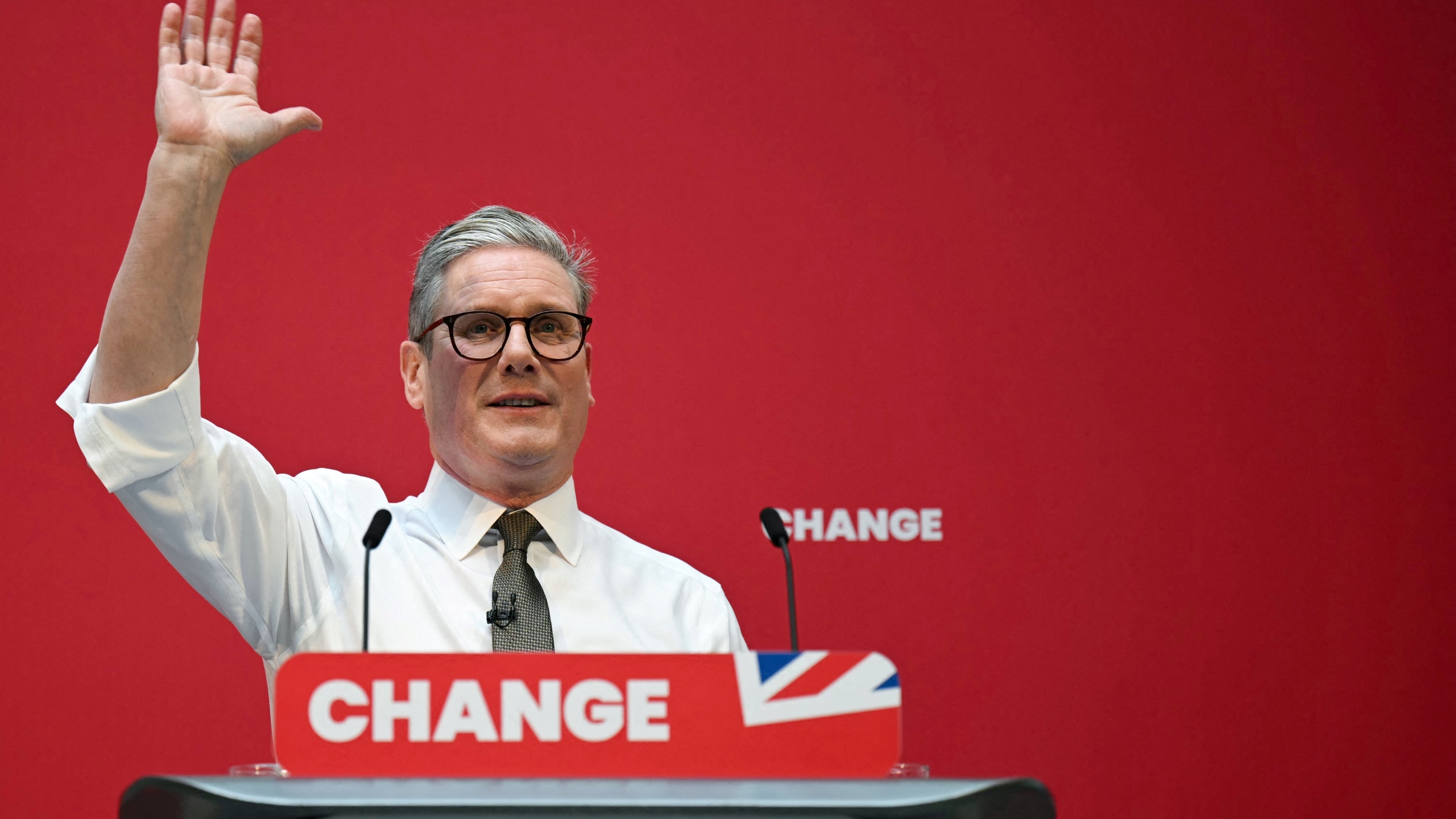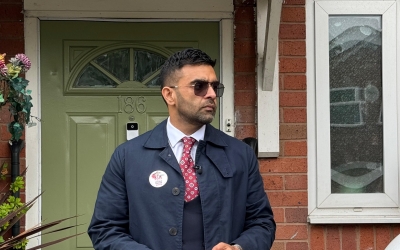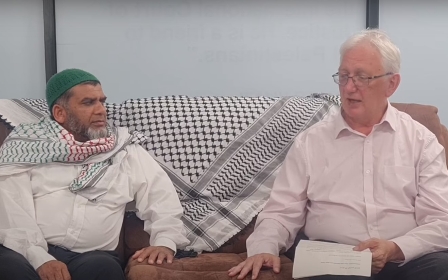UK election 2024: Arrivals from 'countries like Bangladesh' are not being deported, Keir Starmer complains

The leader of the UK's Labour Party, Keir Starmer, has claimed that Bangladeshi arrivals, among others, are not being removed from the UK.
Discussing asylum seekers, Starmer said in an interview to The Sun on Monday that “at the moment, people coming from countries like Bangladesh are not being removed, because they’re not being processed”.
His comments were later backed by shadow cabinet minister Jon Ashworth, who complained that “people coming here from the Indian subcontinent do not get returned”.
Starmer promised that a Labour government would set up a border security command with counterterrorism powers to “stop people coming here in the first place”.
“I'll make sure we’ve got planes going off - not to Rwanda, because that's an expensive gimmick. They will go back to the countries where people come from. That’s what used to happen.”
New MEE newsletter: Jerusalem Dispatch
Sign up to get the latest insights and analysis on Israel-Palestine, alongside Turkey Unpacked and other MEE newsletters
On the same day, shadow paymaster general Ashworth told the BBC that a Labour government would send migrants “from countries like Bangladesh or wherever” back to their countries of origin.
Ashworth, who has been an MP since 2011 in Leicester, Britain’s most multicultural city, claimed that "people coming here from the Indian subcontinent do not get returned. They get put up in hotels and they can stay in these hotels for the rest of their lives. That’s the Tory policy."
In fact, the Conservative government’s policy is that the use of hotels for asylum seekers is a short-term measure to accommodate people who would otherwise be destitute.
While there is no evidence asylum seekers can stay in hotels at taxpayers' expense for "the rest of their lives", many have been staying in hotels for over a year due to a backlog of asylum applications.
“We’re gonna send people back,” Ashworth added in his interview with the BBC.
“We’re gonna process people’s claims, and we’re gonna get on with processing people’s claims, and those people that shouldn’t be here when they come from countries like Bangladesh or wherever, we’re gonna send them back.”
Ashworth was challenged on whether Britain would be able to secure returns agreements with the Taliban and the Iranian government, since a large proportion of asylum seekers in Britain come from Afghanistan and Iran.
“The Taliban and Afghanistan is a different set-up,” Ashworth replied, but did not rule out sending asylum seekers from Afghanistan and Iran back to those countries.
“A big proportion is India, Bangladesh, Albania. We need to deal with those countries.”
Ashworth is the incumbent parliamentary candidate in Leicester South, where around 30 percent of the population, over 30,000 people, are Muslim. Around 39 percent of people in the constituency are ethnic white.
Apsana Begum, Labour's incumbent candidate for Poplar and Limehouse in East London, released a statement on Wednesday afternoon appearing to implicitly criticise Starmer and Ashworth.
"As the daughter of Bangladeshi migrants," she said, "I am so proud of the East End’s diversity and that our communities include migrants from all around the world.
"Let me be very clear: I will never stand by and let migrant communities be scapegoated."
Labour has committed to reducing net migration, strengthening border security by stopping asylum seekers arriving in small boats and fast-tracking removals to safe countries.
MEE has contacted the Labour Party for comment.
Middle East Eye delivers independent and unrivalled coverage and analysis of the Middle East, North Africa and beyond. To learn more about republishing this content and the associated fees, please fill out this form. More about MEE can be found here.





